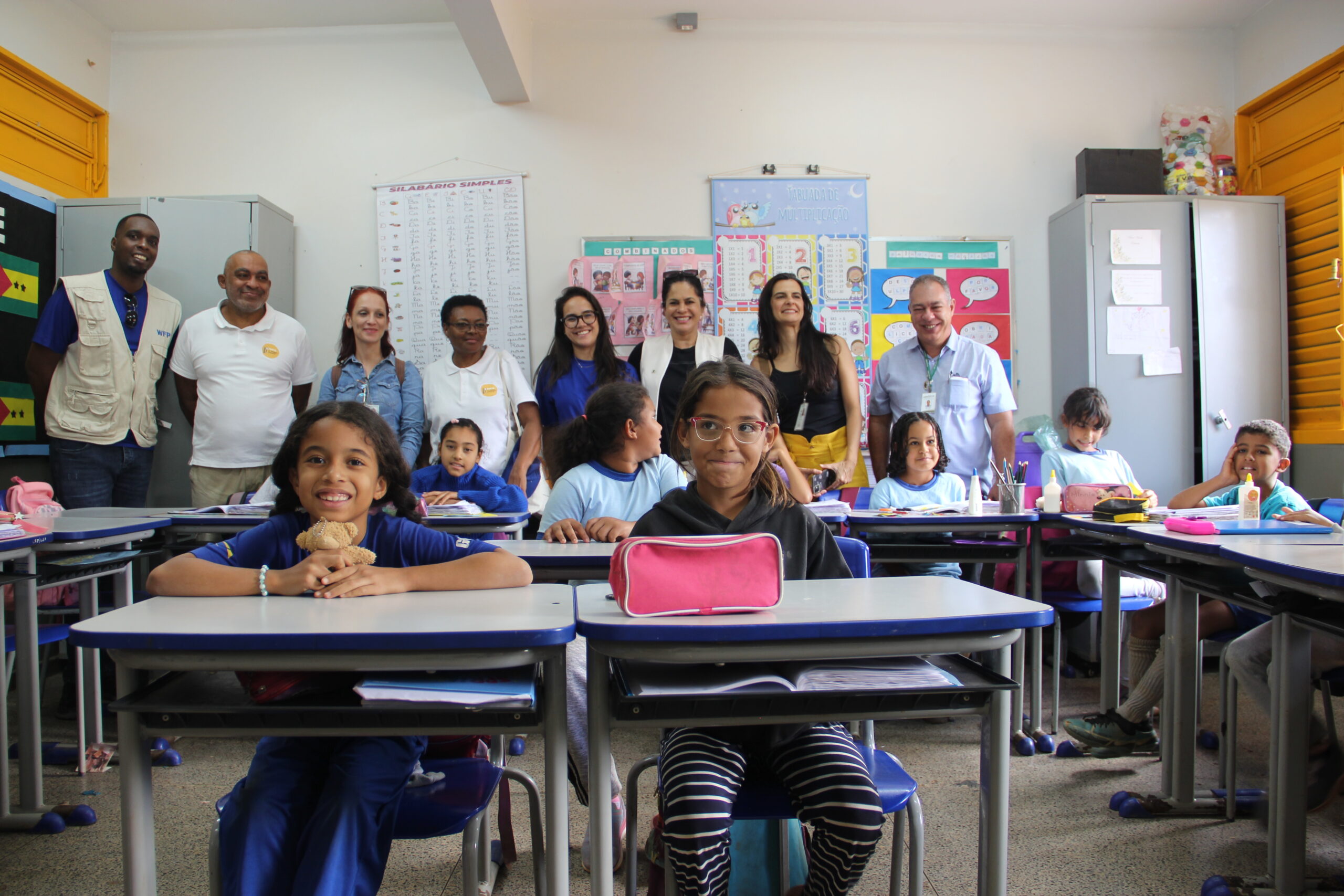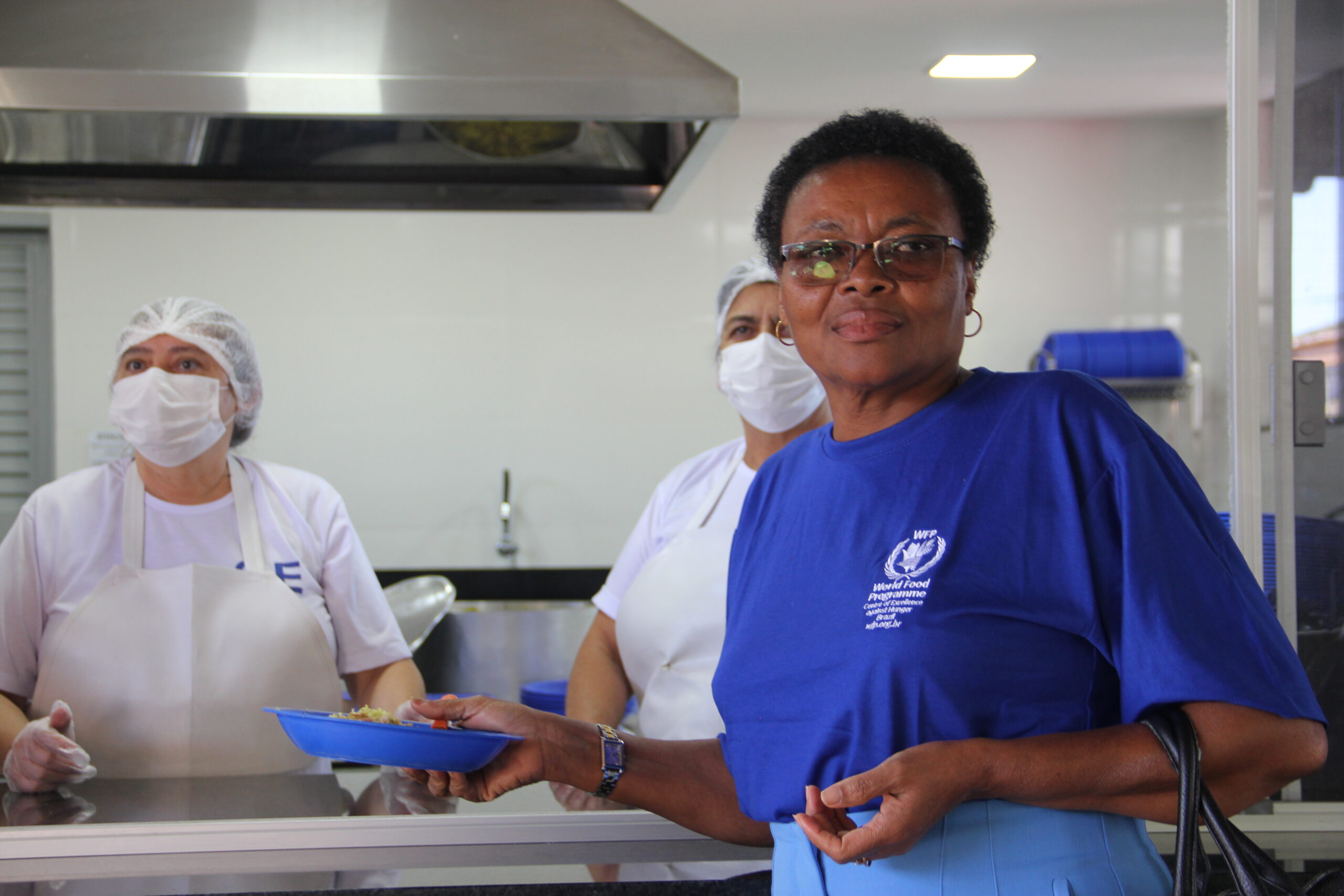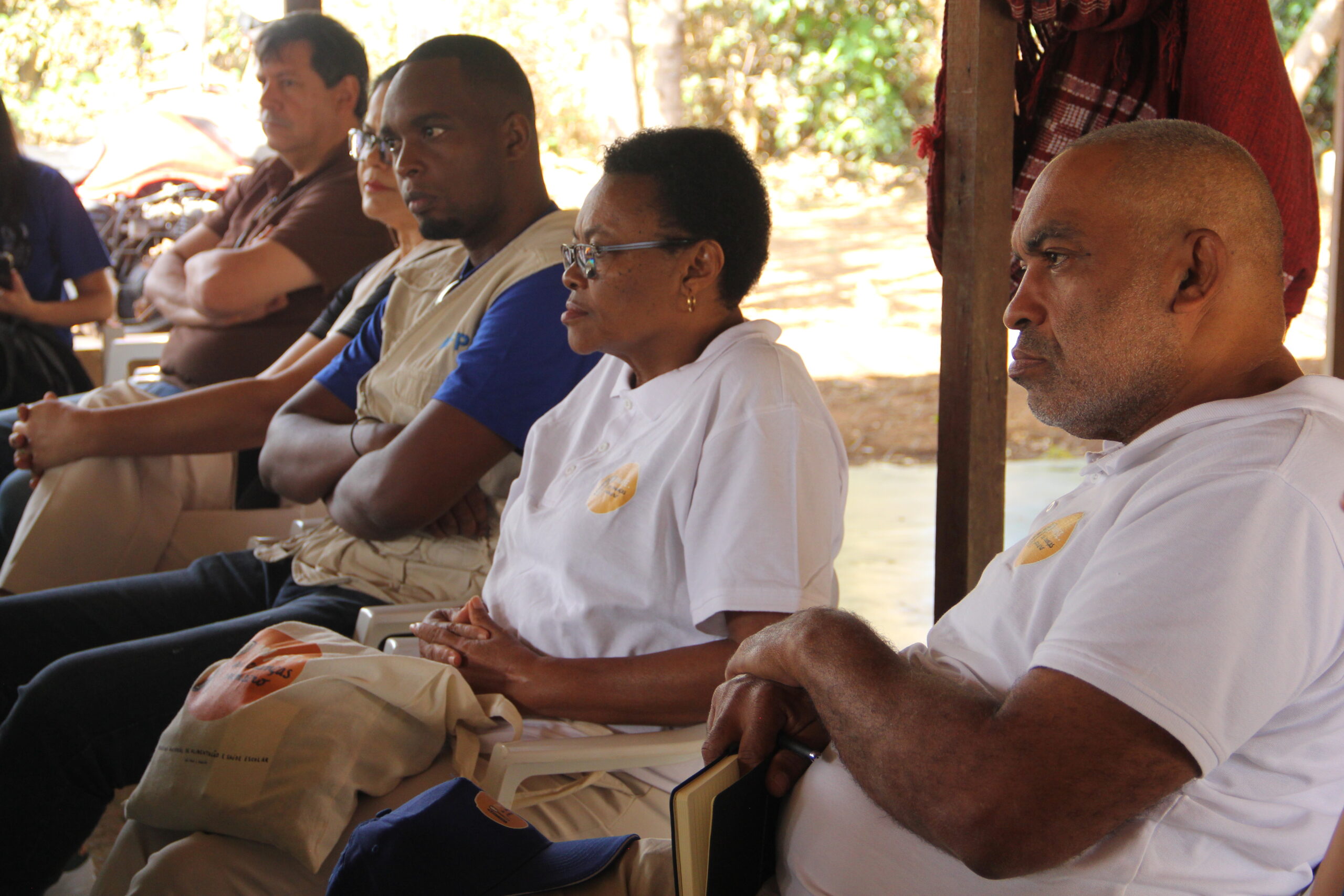 A delegation from São Tomé and Príncipe concludes a field visit to Brasília on Friday, 9 August, to gain first-hand insights into Brazil’s National School Feeding Programme (PNAE).
A delegation from São Tomé and Príncipe concludes a field visit to Brasília on Friday, 9 August, to gain first-hand insights into Brazil’s National School Feeding Programme (PNAE).
A delegation from São Tomé and Príncipe concludes a field visit to Brasília this Friday, August 9, to learn firsthand about the Brazilian National School Feeding Program (PNAE).
This visit was part of an experience-sharing process with Brazil organised by the World Food Programme’s (WFP) Centre of Excellence Against Hunger, in partnership with the Brazilian Agency for Cooperation (ABC) and the National Fund for Educational Development (FNDE). The delegation included the Minister of Education, Culture, and Science of São Tomé and Príncipe, Mrs Isabel Maria Correia Viegas de Abreu, and the Coordinator of the National School Feeding and Health Programme (PNASE), Mr Emanuel Montóia Gonçalves Afonso. Also participating was the WFP Country Office Programme and Policy Officer and Representative in São Tomé and Príncipe, Leon Victor Mushumba.
Drawing from the success of the Brazilian programme, the São Tomé and Príncipe delegation aimed to explore the link between school feeding and improvements in student enrolment rates and overall performance, as well as to learn about Brazilian best practices connecting PNAE with family farming and the use of local products. The delegation also attended lectures on programme financing.
During the visit, the delegation explored the Association of Family Farmers of the Eco Community of Settlement 15 de Agosto (AFECA), an agroecological farm that supplies products to schools in the Federal District. They observed organic vegetable and fruit crops and discussed planting challenges with the farmers. They also visited the rural school EC Aguilhada, located in São Sebastião – DF, to observe the children’s lunch and see the PNAE in action at schools.

On the third day of their visit, the delegation went to CED 01 school in Guará – DF, where they sampled the food served to students, spoke with the kitchen staff and nutritionist, and visited the food storage facility adjacent to the kitchen. The same day, they toured the PNAE warehouse, which stores food used for school feeding in the Federal District.
Since 1976, São Tomé and Príncipe’s school feeding programme has been implemented and refined with WFP support, and has been financed and managed by the São Tomé and Príncipe government since the establishment of the National School Feeding and Health Programme (PNASE) in 2011.
“The WFP in São Tomé and Príncipe is primarily engaged in what we call capacity strengthening with the government to help it implement its school feeding programme. The WFP is providing technical assistance, but is also working with farmers and the Ministry of Agriculture to increase local production and resilience,” said Leon Victor Mushumba, WFP Programme and Policy Officer and Country Office Representative in São Tomé and Príncipe.
On average, the programme provides approximately 8 million meals annually, benefiting pre-school and primary school students, with one of its main goals being to ensure that the food is based largely on local products, making them more accessible to the population.
Minister Isabel Maria Correia of São Tomé and Príncipe stated that she also benefited from the school feeding programme as a student. “The food was provided solely by the WFP, which supplied foodstuffs to all schools in São Tomé and Príncipe. Today, we have mandatory school feeding aimed at improving the food security of children under the responsibility of the São Tomé and Príncipe state,” she said.
Another significant challenge faced by the country is the training of qualified professionals for the PNASE, such as nutritionists. According to Daniel Balaban, Director of the WFP Centre of Excellence Against Hunger in Brazil, this is a common request from various countries, including São Tomé and Príncipe.
“Few countries have trained nutritionists for school feeding programmes. They want to develop menus, but often lack qualified professionals,” Daniel noted.
Focusing on solutions to this issue, the delegation attended a meeting at the Ministry of Education to discuss the training of nutritionists for young people and adults, technical and vocational education, and inclusive education.

Workshops and Technical Meetings
In the early days of their visit, the delegation also participated in various workshops and technical meetings, beginning with presentations on the state of school feeding in São Tomé and Príncipe and Brazil, the work of the Centre of Excellence, and the WFP’s activities in São Tomé and Príncipe.
The FNDE presented data on the PNAE’s operations, provided a step-by-step guide on programme monitoring and evaluation, and conducted a workshop on menu planning. Additionally, the delegation met with the FNDE’s Budget and Financial Management Coordination for School Feeding to discuss the history of PNAE’s budget management and challenges faced in ensuring programme sustainability.
The team also met with FNDE President Fernanda Pacobahyba to discuss areas where Brazil could support technology transfer, such as sustainable management of school kitchens, implementing aquaculture projects to include tilapia in school menus, and accessing best practices for seed banks for growing food for school meals.
The fourth day began with a visit to IFB Brasília and continued with a meeting at the National Institute for Educational Studies and Research Anísio Teixeira (INEP). Topics covered included the school census, data collection on basic education, statistics, and educational studies.
The day concluded with a visit to the ABC, where the delegation was received by Ambassador Ruy Pereira and discussed the Agency’s work, potential cooperation projects, and updates on São Tomé and Príncipe’s presidency of the Community of Portuguese Language Countries (CPLP), a position it has held since 2023. The country is also part of the Global Coalition for School Feeding.
Finally, at the end of the visit, São Tomé and Príncipe shared its impressions of the mission and discussed the next steps for the PNASE, as well as the deepening of cooperation between the country and Brazil.




